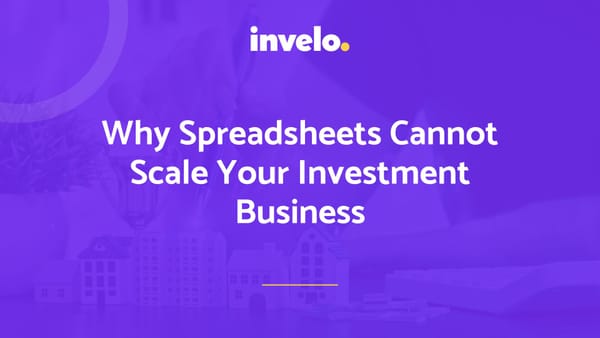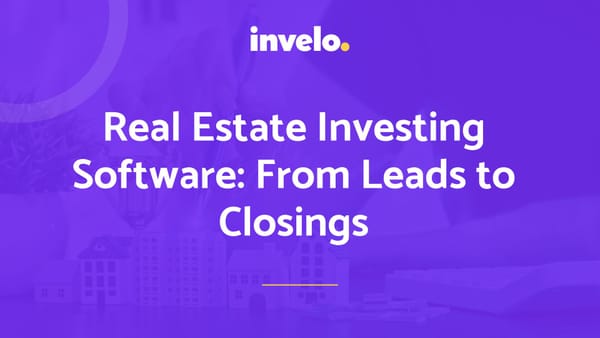Every real estate investor has their own unique strategy for what they decide to invest in. For many investors, foreclosures or pre-foreclosures are especially sought after.
If you are looking for a property you can flip or fix up and rent out you are probably looking for something that will generate the most return on investment. Logically you would look for a home that is underpriced and undervalued for its area so you can sell or rent at a higher rate. It’s the old adage that all investors follow – buy low and sell high.
This is why buying foreclosures is so popular in real estate investing – they are usually sold at a lower price and if done with caution, can generate serious revenue. But of course like every investment, there are pros and cons to getting involved in foreclosures.
Why Are Foreclosures Popular?
Real estate investors get involved in foreclosed properties because they have excellent potential for profit. Each property is different but they are all generally sold quickly for a lower price than they are worth. In general, there are a lot of benefits to investing in foreclosed properties if you are a savvy investor.
They Are Cheap Purchases
If you are looking for cheap real estate it often doesn’t get cheaper than foreclosed homes. Generally with foreclosures, banks and lenders are trying to recoup some of the money lost on the home as quickly as possible. These homes may have been in the foreclosure process for years without a single payment on a loan. Because of this banks are usually motivated to get their money and get out.
Foreclosures are also a cheap buy because they are often not in the best condition. You will often find foreclosed properties distressed and in disrepair. The level of disrepair often varies dramatically from home to home. You could find a home that is completely uninhabitable or you could find one that is just outdated and dirty.
When it comes to foreclosed properties banks and lenders do not want to hold onto the property any longer. They will not make updates or fixes to the property, they simply want to offload it as fast as they can – and the fastest way to get rid of a home is to sell it below market value.
Low cost also means more wiggle room when it comes to financing. Because the seller is a bank, real estate investors can often negotiate with the seller to reduce closing costs and down payments. This enables an investor to buy a property using less cash – a great thing for a beginner who does not have a lot of cash on hand. For more seasoned investors with more cash on hand, foreclosures can also be a great all-cash deal, especially those that come up at auction.
PRO TIP: Check out our real estate investing resource list for help with marketing and finding prospects.
You Can Expect A Quick Sale
One of the other motivating factors for real estate investors is that foreclosures generally sell fast. Unlike a normal real estate transaction, foreclosed properties are sold fast to recoup some of the debt on the property. You don’t have to worry about the seller backing out at the last minute or holding up the process because the bank does not want to hold onto the property any longer.
A faster closing time means you can get to work making repairs sooner and establish a speedy timeline to that property generating profit.
A Great Way To Build Equity
If you are looking to invest in something that has the potential to build equity, foreclosures are a smart place to focus. When you buy a foreclosed property for below market value and develop it you will likely raise the value of the surrounding homes in the neighborhood. If the value of the neighborhood goes up, so does your home. In the end you can build up more equity than the surrounding homes just from developing the one investment property.
This is a great strategy to use in a neighborhood that is either currently sought after or is on the up and up. You want to make sure that all of your time, energy and cash put into the home reaps the highest rewards down the line. Investing in a property in a desirable neighborhood is a great way to ensure that your investment property will grow in equity.
Generally Less Competition
If you don’t love getting involved in bidding wars, foreclosures may be your best option. Because the homes are usually in some sort of distressed state many real estate investors don’t want to get involved. Likewise, normal homeowners will not be interested in a home they have to pump cash into to get it fixed up. This leaves you with less competition than you would have on a normal property you were looking to invest in.
Additionally, some foreclosed homes are sold at auction for cash bidders only, which greatly reduces the number of investors that can buy the property. If you can put up the cash where few others can, you will not face a ton of competition to win the sale. This is a great advantage for a seasoned investor or just someone who has a lot of cash on hand.
Drawbacks of Foreclosures
Like every kind of real estate investment, foreclosures have their own set of drawbacks. If you are an experienced investor, or at least someone who does their research beforehand, you can avoid many of the drawbacks that happen with foreclosed properties. It’s all about evaluating each individual property on its own and weighing the risk with the potential reward. If you don’t do the research you may find yourself stuck in a place that is expensive to get out from.

Homes Are In Poor Physical Condition
The one major issue with foreclosed homes is that they are often in poor physical condition. Many foreclosures have major issues associated with them and may have been sitting vacant for years. The previous occupants also may have left the home in disrepair with many of the belongings and garbage still inside. Distressed properties all come with their own unique challenges and issues.
You may encounter extremely unfinished construction or improvements made to the property that are not to code or made without a permit. In these situations you would have to demolish whatever was done and start again.
If the home was left unoccupied for a period of time it may have been vandalized and destroyed or it may simply be filthy and filled with bugs, animals and overgrowth. Vacant homes deteriorate in unique ways making them a challenge to repair, especially if they have been vacant for a long time.
If you are investing in a foreclosure you should expect these kinds of repairs and budget accordingly. The condition of each home varies wildly and it is important to know what you are getting into before you begin construction. Foreclosures are usually in some sort of distressed state and require major repairs, and once you sign that contract they are yours to make. It is important that you evaluate each property individually to figure out if it will be worth it for you.
Can Be Very Risky
Risk is a big part of why foreclosures are not for everyone. Buying a property in a distressed state is inherently risky. You may be able to see some of the things that need to be repaired but you also may uncover other costly repairs that need to be made after you have already purchased the property. Depending on your situation this may be do-able or not. Because of this, foreclosed properties have the potential to become a money pit.
If you don’t do your due diligence before you purchase the property you could be sinking a significant amount of cash into a home that just won’t recoup it in a meaningful way. Either the home is too run down to make liveable or you have purchased a foreclosure in a neighborhood or community that is on its way down or full of foreclosures, making the value of the home even at its best not high enough.
The risk itself can be mitigated with experience and information. Before you endeavor on any foreclosure project you should have as much information on the home and neighborhood as possible. You should be able to estimate repairs and your potential profit before you begin. Just purchasing a foreclosure because it is cheap does not mean that you will make a profit.
Not A Lot Of Information Available
Because you are buying the property from a bank you will not be able to get much information about the property from them. You have to learn about the property entirely from the home inspection and your own time on-site. This can certainly make discovering major issues more difficult, if you discover them before buying at all.
Banks also favor transactions with as few contingencies as possible to get the sale done. If you are competing with another investor you may waive certain contingencies to secure the sale that would have told you more about the property before you bought it.
This lack of information can become a huge problem when you buy a foreclosure because you may not know everything that needs to be repaired to make the home livable again. This is why it is important to gather as much knowledge as possible from neighbors and inspectors before you buy. With a foreclosed property you have to do more in depth due diligence than you would for any other kind of purchase.

It Takes Time
The sale might be quick but getting a distressed property up to snuff will take some time and patience. If you think you will buy a foreclosure, slap a coat of paint on it and put it back on the market you will be very disappointed. Foreclosures take time to repair and rehabilitate. You have to be in a position where you can take that time and pour that energy into the project.
You may be faced with major repairs that can take months to complete. You may need permits or other kinds of permission that can hold up the process. The potential for profit is there but patience is required.
Final Thoughts
In today’s market foreclosures are a hot commodity because there are so few of them. But before you get swept away by a low price tag make sure you do enough research on the property that you know what to expect once the sale is final.
Foreclosures can be incredibly lucrative if done well – but they can also be money pits if done poorly. If you choose to become involved in foreclosed properties make sure you are aware of all the benefits and drawbacks to put yourself in the best position at the start.






